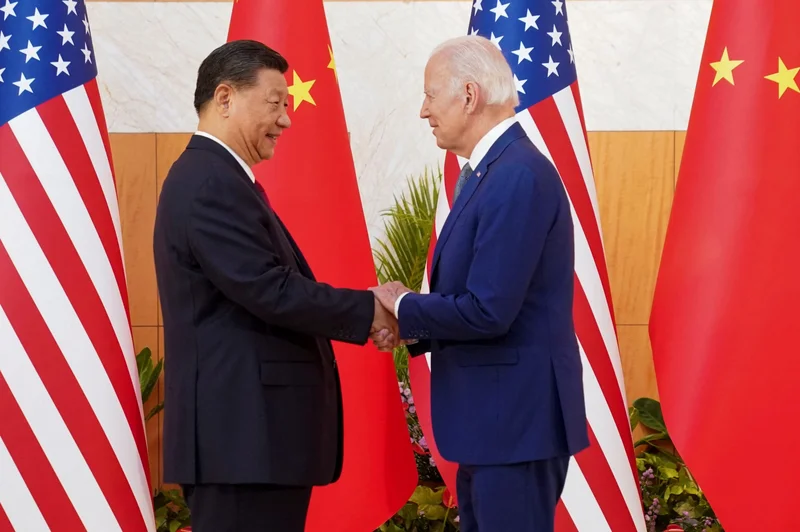Trump's "G-2" China Framing: A Dangerous Nostalgia Trip?
Okay, so Trump's back at it again, this time floating the idea of a "G-2" relationship with China. For those who haven't been following international economic policy since the mid-2000s, the G-2 concept basically envisions the US and China as co-managing the global economy. It's… ambitious, to say the least. And potentially disastrous.
The original G-2 idea, cooked up by economist C. Fred Bergsten back in 2005, wasn't totally crazy at the time. Bergsten argued that the US needed to focus on key bilateral relationships to manage global growth, exchange rates, and energy (among other things). He even got some heavy hitters like Zbigniew Brzezinski on board. The rationale was simple: the US and China were the two biggest players, so they needed to be on the same page to avoid global economic meltdowns. There was a financial crisis in 2008, and the logic was that there would be no sustained recovery unless the United States and China lead it. Similarly, as the largest polluters globally, “There will be no international compact on global warming unless they embrace it”.
But here's where the nostalgia kicks in. 2005 was a very different world. China was still playing the "hide your strength and bide your time" game. Now? Not so much. Xi Jinping's China has been flexing its military muscles in the Indo-Pacific and generally making a nuisance of itself on the world stage. Trump 1.0 (from 2017 to 2021) even framed China as a strategic threat, defining its actions as a threat to the US and the West-led global order. I remember reading those policy papers back then and thinking, "Finally, someone's calling it like it is."
And this is the part I find genuinely puzzling. Does Trump really think he can go back to a pre-2013 world where China is a docile partner? Or is this just another negotiating tactic?
The real problem with the G-2 idea isn't just about China's behavior. It's about what it signals to our allies. The article mentions that this new framing, indicating parity between the countries, has worried US partners about how Washington would now treat them after years of committing to cooperating against Chinese actions, with a potential softening on China. After years of the US pushing back against China's aggression, a sudden embrace of "G-2" leaves countries like Japan, Australia, and even India wondering where they stand. How Trump’s ‘G-2’ framing for US-China relations could impact allies

Consider the Quad grouping (India, Japan, Australia, and the US). Revived in 2017 to counter China's influence, the Quad was a clear signal that the US was committed to a multilateral approach. Now, there's talk of a new Quad-like grouping, potentially swapping out India for the Philippines. (The original article mentioned a meeting of the four countries’ leaders last week.) Is this just diplomatic chatter, or is there something more substantial behind it?
We're talking about real-world consequences here. Alliances aren't built on nostalgia; they're built on trust and shared interests. And a G-2 framework, at least on the surface, undermines that trust. The tariff saga under Trump 2.0 had already cast a shadow on the earlier certainties and assumptions about US policy. And strained ties after the US’s 50% tariffs on India led to Trump’s planned November visit for the Quad leaders’ summit being postponed to next year.
The article also touches on the possibility of Trump-Xi bonhomie souring, like it did with Putin. That might be the "best-case scenario" for some, but it's hardly a stable foundation for global policy.
The biggest issue, though, is the underlying assumption that the US and China can simply "agree" on things. The article mentions discrepancies over a deal to ease rare-earth controls. Washington says past controls will also be eliminated; Beijing hasn't announced that. China-US deal to ease rare-earth controls hits snag over scope This isn't just a minor detail; it's a fundamental disagreement about the scope of the agreement.
And that, in a nutshell, is why the G-2 idea is so dangerous. It assumes a level of cooperation and alignment that simply doesn't exist. It's a fantasy built on a bygone era, and it risks undermining the alliances and partnerships that are critical to maintaining a stable global order. So what's the alternative? Stick to a multilateral approach, strengthen alliances, and hold China accountable for its actions. It's not as simple as a catchy "G-2" slogan, but it's a hell of a lot more realistic.